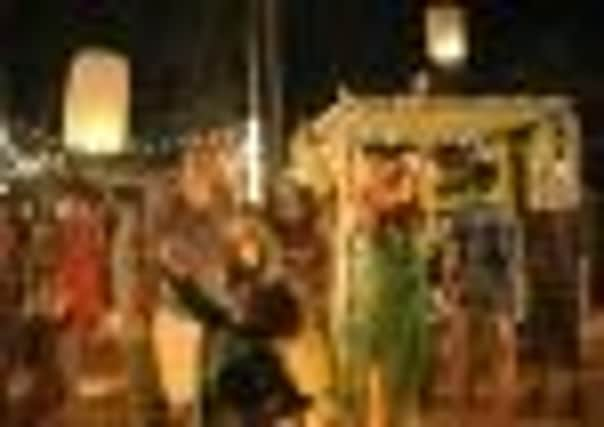Film review: The Impossible


The Impossible (12A)
Director: Juan Antonio Bayona
Running time: 107 minutes
* * * *
Five years after his ghost story The Orphanage, director Juan Antonio Bayona returns with another horror story, again filtered through the eyes of children. This time it’s based on the true story of a family who holidayed in the paradise resort of Khao Lak in Thailand, just as the most destructive tsunami in history hit beaches in the Indian Ocean. Businessman Henry Bennett (Ewan McGregor), his doctor wife Maria (Naomi Watts) and their three young sons are sucked in, then spat out and scattered. For a long time it looks as if Maria and her eldest son Lucas (Tom Holland) are the only survivors, and frankly the prognosis doesn’t seem too good for Maria, who has a gaping hole in her leg and some grim looking stuff to cough up.
The Impossible is at its most harrowingly effective in its first hour, where people cling to small hope, and where small gestures – locating a tiny voice among a guddle of twigs and branches, handing over a mobile phone to a stranger despite only precious minutes of battery life – are the most powerful. Then there’s the tsunami itself, recreated using Thai locations, a tank in Spain, CGIs and many gallons of water.
Advertisement
Hide AdThe sentimental impulse is to give most of the plaudits to the children in the film, but that would marginalise the adult actors who set the tone. Watts and Holland are both compelling as mother and son taking turns to rescue and support each other, and the film also produces one of McGregor’s most effective performances. There’s been a lot of talk already about his emotional breakdown during a phonecall home, but I also very much admired an urgent conversation with his middle child about responsibility, when Simon (Oaklee Pendergast) earnestly pleads not to be put in charge of baby Thomas (Samuel Joslin) because “I’ve never looked after anyone before”.
Some of the dialogue is clunky. Early on, Maria admits to a fear of turbulence that feels like foreshadowing at its most functional, and it’s no accident that the film is at its best whenever the chatter doesn’t matter. There is another soundscape in The Impossible that is far more effective – the roar of devastation and the eerie silence in the immediate aftermath. It’s just a pity that Bayona’s film also includes an intrusive swelling soundtrack score that could have easily been despatched to Davy Jones’ locker.
Narrowing the focus to the Bennetts’ experience has also inevitably raised the question of whether the film marginalises the tragedy of thousands of others, especially the many thousands of Thais who perished. At the very least, there could have been more of an acknowledgement that if you are wealthy and white, you may have access to help that only wealthy white European money can buy. Also, the family on which the Bennetts are based was Spanish, and the choice of fair-skinned British and Australian actors seems a deliberate box-office calculation.
Yet the forward thrust of The Impossible is universal, in particular the desperate fight for survival and a family bond that starts off feeling a little by rote, then gains strength and poignancy. And at its most primal, this wallop of disaster seems sincere, not cynical. «
General release from Tuesday
Twitter: @SiobhanSynnot